
Botafogo de Futebol e Regatas is a Brazilian sports club based in the neighborhood of Botafogo, in the city of Rio de Janeiro. Although they compete in a number of different sports, Botafogo is mostly known for its association football team. It plays in the Campeonato Brasileiro Série A, the top tier of the Brazilian football league system, and in the state of Rio de Janeiro's premier state league. In 2000, Botafogo finished 12th in a vote by subscribers of FIFA Magazine for the FIFA Club of the Century. They have won the Brazilian championship two times, in 1968 and 1995. Botafogo won the Copa Libertadores for the first time in 2024.
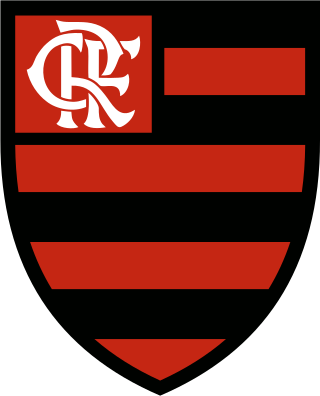
Clube de Regatas do Flamengo, more commonly referred to as simply Flamengo, is a Brazilian multi sports club based in Rio de Janeiro, in the neighborhood of Gávea, best known for their professional football team. They are one of two clubs to have never been relegated from the top division, along with São Paulo. Flamengo is the most popular team in Brazil with more than 46.9 million fans, equivalent to 21.9% of the population that supports a team in Brazil.

Fluminense Football Club is a Brazilian sports club based in neighbourhood of Laranjeiras, in Rio de Janeiro, being the oldest football club in the state since its foundation in 1902. Competes in the Campeonato Brasileiro Série A, the first tier of Brazilian football, and the Campeonato Carioca, the state league of Rio de Janeiro. The word "fluminense" is the gentilic given to people born in the state of Rio de Janeiro, in Brazil.

The Campeonato Carioca, officially known as Campeonato Estadual do Rio de Janeiro, also commonly known as the Cariocão, is the state football league of Rio de Janeiro, Brazil. It is under the authority of the FERJ or FFERJ. It is an annual tournament, started in 1906.
The Torneio Roberto Gomes Pedrosa, also known as Taça de Prata, or nicknamed Robertão, was an association football competition contested in Brazil between 1967 and 1970 among soccer teams from São Paulo, Rio de Janeiro, Rio Grande do Sul, Minas Gerais and Paraná states. It was an important soccer tournament, being considered a predecessor to the Brazilian Championship induced in 1971. Thus in 2010 the Brazilian Football Confederation decided to consider the winners of the Robertão as Brazilian champions. The 1st edition of the tournament was organized by Federação de Futebol do Estado do Rio de Janeiro and Federação Paulista de Futebol.
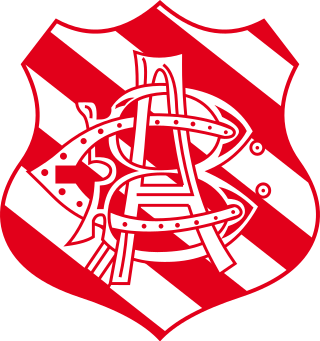
Bangu Atlético Clube, commonly known as Bangu, is a Brazilian professional association football club based in Rio de Janeiro, in the western neighbourhood of Bangu. The team plays in Série D, the fourth tier of the Brazilian football league system, as well as in the Campeonato Carioca, the top tier of the Rio de Janeiro state football league.

Volta Redonda Futebol Clube, commonly referred to as Volta Redonda, is a Brazilian professional club based in Volta Redonda, Rio de Janeiro founded on 9 February 1976. It will compete in the Campeonato Brasileiro Série B, the second tier of Brazilian football, in 2025. As well, it also compete in the Campeonato Carioca, the top flight of the Rio de Janeiro state football league.
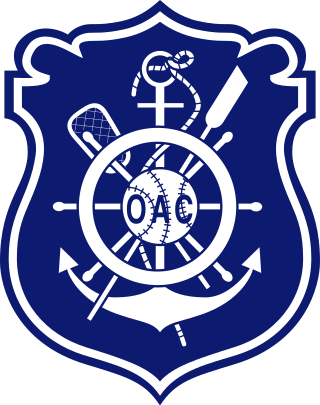
Olaria Atlético Clube, usually abbreviated to Olaria, is a Brazilian football club established in 1915, since expanded into other sports. Mostly known for its Brazilian football team based in the city of Rio de Janeiro, in the neighbourhood of Olaria. The team competes in the Campeonato Carioca Série A2, the second tier of the Rio de Janeiro state football league.
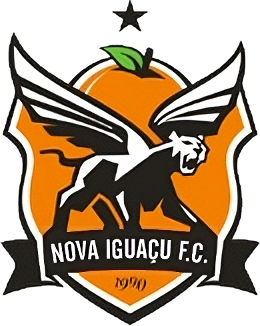
Nova Iguaçu Futebol Clube, or Nova Iguaçu as they are usually called, is a Brazilian football team from Nova Iguaçu in Rio de Janeiro, founded on 1 April 1990.

The Torneio Rio–São Paulo was a traditional Brazilian football competition contested between São Paulo and Rio de Janeiro teams from 1933 to 1966, in 1993 and from 1997 to 2002.

Fla–Flu is an association football derby between Flamengo and Fluminense, considered one of the biggest rivalries in Brazilian football. Their matches usually take place at the famous Maracanã Stadium, located near downtown Rio de Janeiro, in the Maracanã district. The Fla–Flu holds the world's record football match attendance of 194,603 people in a 1963 derby.

Clássico dos Milhões is the association football derby between CR Flamengo and CR Vasco da Gama, both from the city of Rio de Janeiro, Brazil. Considered one of the most fiercely contested derbies in Brazilian football, both in historic rivalry and in popularity. It has been named that way since its beginnings in the 1920s, as Flamengo and Vasco have the two largest fan bases in the state of Rio de Janeiro.

América Futebol Clube (SP), also known as América de Rio Preto or simply América, is a Brazilian football team based in São José do Rio Preto, São Paulo. Founded in 1946, it plays in Campeonato Paulista Segunda Divisão.
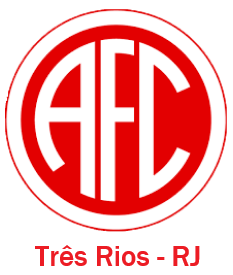
América Futebol Clube, usually known simply as América, or as América de Três Rios, América-TR or América (TR), is a Brazilian football club from Três Rios, Rio de Janeiro state.

Moisés Matias de Andrade, usually known simply as Moisés, was a professional footballer who played for several Campeonato Brasileiro Série A clubs.
The 2020 Campeonato Carioca de Futebol was the 117th edition of the top division of football in the state of Rio de Janeiro. The competition was organized by FERJ. It began on 22 December 2019 and ended on 15 July 2020. On 16 March 2020, FERJ suspended the Campeonato Carioca indefinitely due to the coronavirus pandemic in Brazil. The tournament resumed behind closed doors on 18 June 2020.
The 2022 Campeonato Carioca de Futebol was the 119th edition of the top division of football in the state of Rio de Janeiro. The competition was organized by FERJ. It began on 25 January 2022 and ended on 2 April 2022.
The 2023 Campeonato Carioca de Futebol was the 120th edition of the top division of football in the state of Rio de Janeiro. The competition was organized by FERJ. It began on 12 January 2023 and ended on 9 April 2023.
Ubirajara Gonçalves Motta, better known as Ubirajara Motta, was a Brazilian professional footballer who played as a goalkeeper.
Mauro Fonseca, better known as Maurinho, is a Brazilian former professional footballer and manager, who played as a right back.




















